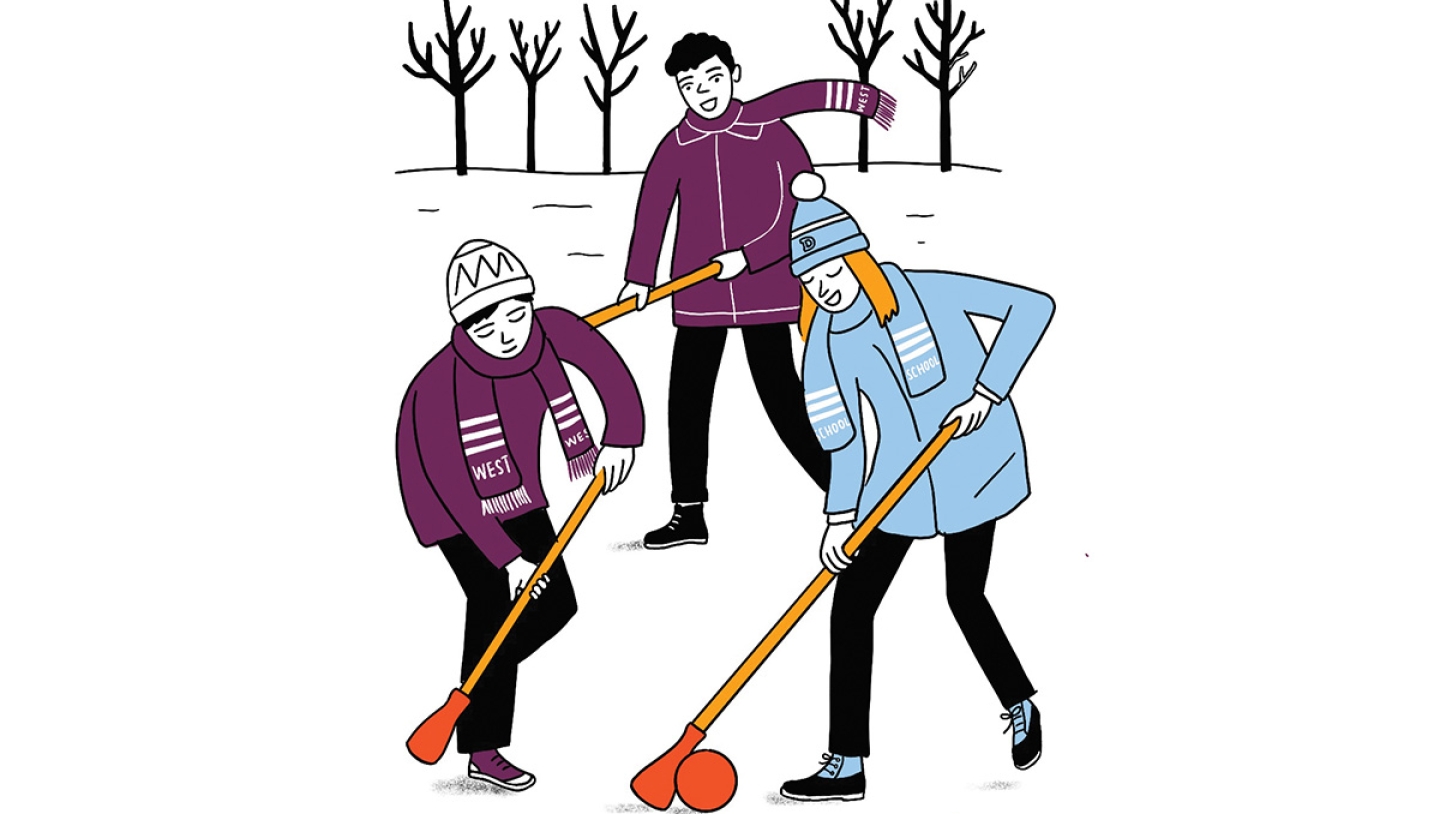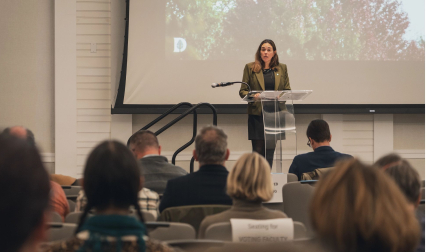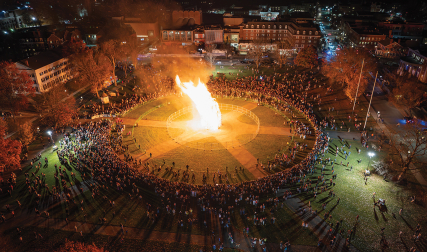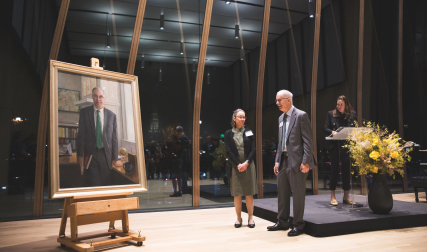Illustrations by Drue Wagner
For nearly a decade, all students have been assigned to one of six house communities for their four years on campus. Plans for new and improved dorms may eventually refine the system, but for now, students have plenty of opinions about the houses.
“It's pretty solid because it tries to integrate you into the community from the outset.” -Peyton Sherwood ’27, McLean, Virginia, South House
“I really like the system overall. The fact that it’s randomized allows you to meet so many incredible people from different backgrounds. People are close and very friendly. Whenever you walk into our common room, there will 100 percent be something going on. We recently got a ping-pong table and a foosball table, and it is just good vibes overall. I’m also close to my neighbors, and I can’t imagine life without them. We have daily debriefs every night. But the worst part is that one of my closest friends lives in another house, and I won’t be able to ever dorm with her.” -Madison Wuu ’28, Pasadena, California, West House

“I don't think it brings people together enough to justify the barriers it imposes on who you can house with. People say the house system was meant to counter the Greek system, but I think a real way that it actually does that is it prevents people who are from the same frat from rooming together, because you need to find someone in your housing community.” -Robert Boxwell ’25, Kuala Lumpur, Malaysia, South House
“I like it so far, as a freshman. It’s been nice to have your own community that you get to meet during O-week. I’ve gotten really close with my UGA and my floor, and we’ve done activities together. When I talk with my friends from other schools, they have no connection with other people on their floor. It’s really fun to meet other ’28s from different dorm buildings that you wouldn’t have met if not for the house system.” -Justin Slayen ’28, San Francisco, South House
“The housing community is fun. At first, it kind of gives the impression of Hogwarts houses.” -Emily Leung ’27, Edina, Minnesota, North Park House
"I was unhoused at the end of freshman spring because my priority number was super low. It was really confusing. I didn’t find out where I was living until later in July. It worked out for me, but some people ended up in off-campus apartments, so that’s super inconvenient for them.” -Annabelle Coles ’27, Cold Spring Harbor, New York, East Wheelock House

“Sometimes the community events can be boring, but there was a School House first-year community cruise on Sunapee, and 100 people signed up for 40 slots. It was a good way to do something that’s pretty costly for free and meet a lot of people. Some houses have really unequal dorm spaces. The Choates aren’t great but it’s fine. If I was in Allen House, I would be so pissed because if you start at the Choates your freshman year, it doesn’t get better for upperclassmen housing. Being restricted to certain dorms is annoying.” -Tyler Grubelich ’26, Farmington, Connecticut, School House
“I think it's helpful for freshmen, but it shouldn't be a necessary thing for upperclassmen.” -Jamie Lim ’27, Forth Worth, Texas, Allen House
“Free dinners that the housing communities host have good food and are a good break on campus and a good way to socialize.” -Kled Marinaj ’26, New York City, West House
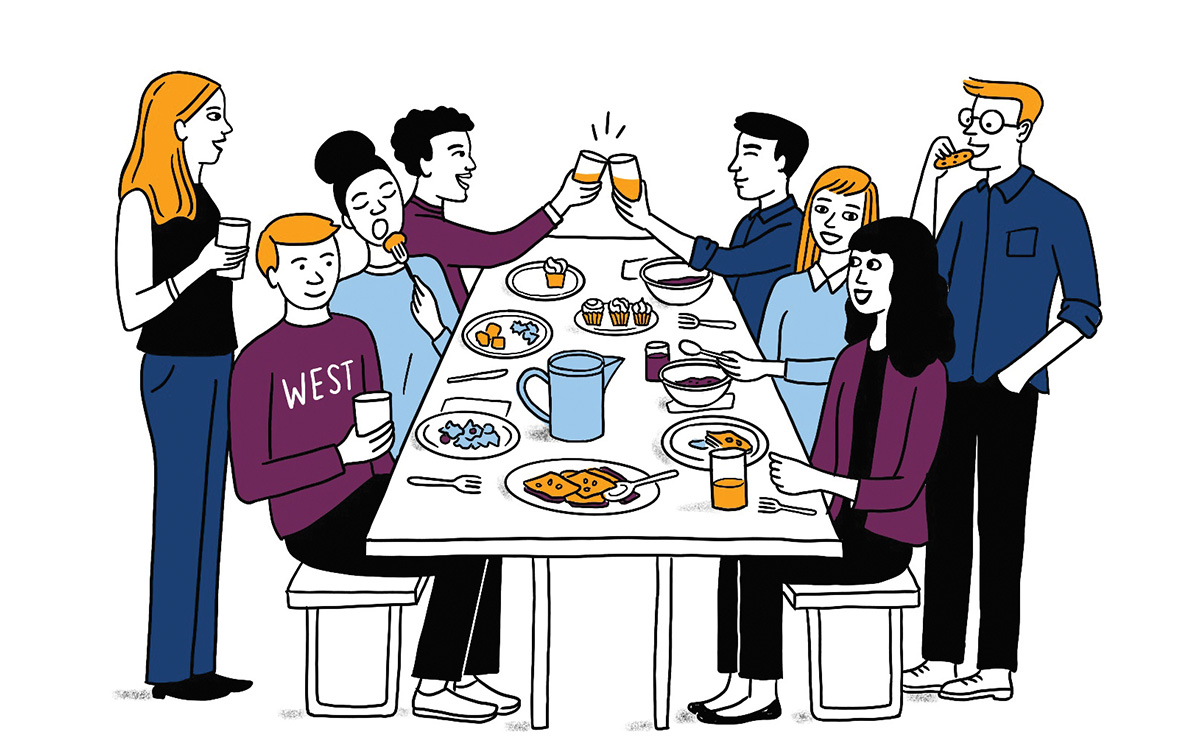
“It’s a little bit of a failure by the administration—not that it was poorly executed, but it is poorly conceived. It was created in 2016 by President Phil Hanlon ’77 to provide a source of community outside of Greek spaces. But you’re not going to build community through randomly created groups of students. The success of the Greek system is that students choose their groups and feel like they earn their place in them. Same thing used to be true with the houses at Harvard and residential colleges at Yale. Each house had varying characters, so it became sort of an identity. The house system doesn’t work for undergraduates because students don’t opt into them and don’t identify with them.” -Timothy Bonis ’26, Wellesley, Massachusetts, North Park House
“I like having a house on campus, but compared with the experience of friends at other schools, where they have field days and large events, there is less of a house presence here. But I love a good community dinner.” -Elaine Jiao ’27, Brookville, New York, North Park House

House System By the Numbers
6 house communities (Allen, East Wheelock, North Park, School, South, West)
1 professor assigned to lead each house and live nearby on campus
4 resident fellows—paid grad students who live among members of each house and create programming, host professors, and counsel students
8-10 hours per week that resident fellows commit to provide programming, mentorship, and other interactions with students in return for room and board
1 additional professional residential education staff members who co-lead each community with the professor
1 competitions and games each community hosts as part of the annual house cup—such as intramural sports, capture the flag, and Family Feud
4 house cups won by East Wheelock House during the last seven years

